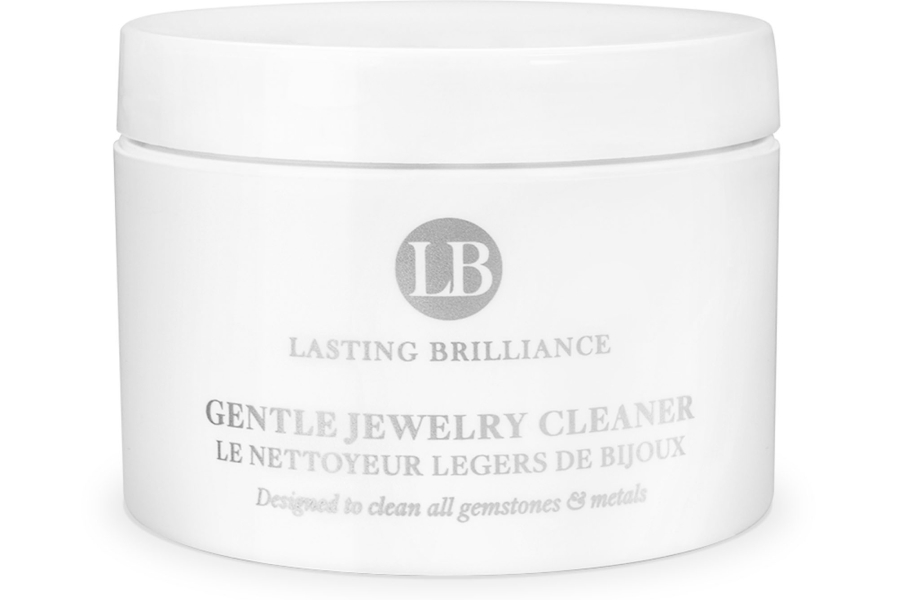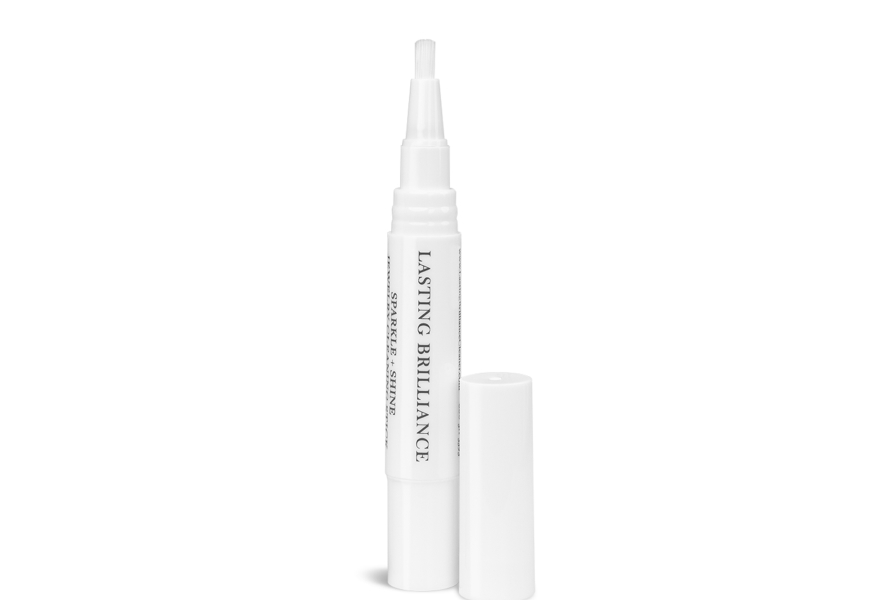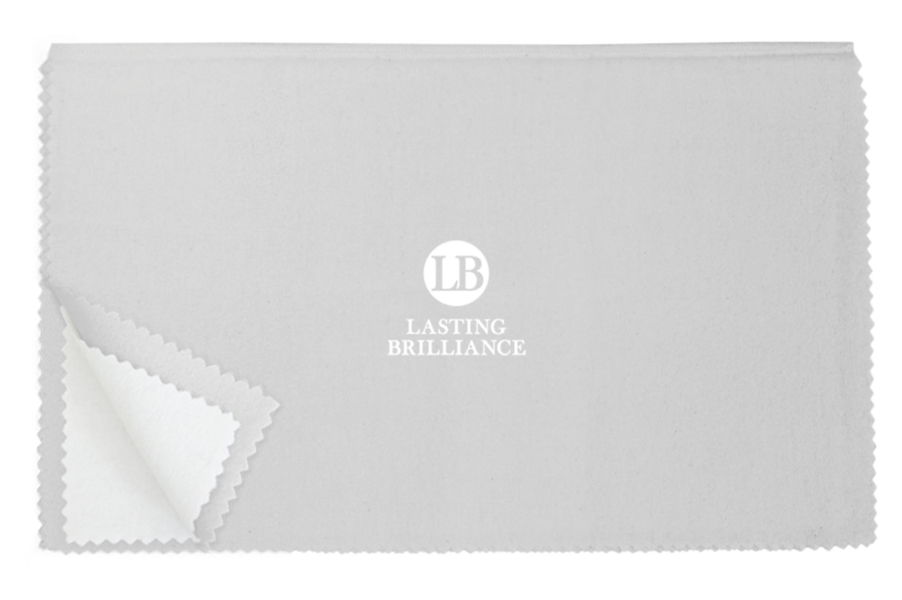CARE & CLEANING TIPS
- Avoid scratches by keeping jewelry away from hard surfaces.
- Store pieces separately in a box or case to prevent scratching.
- Bathing won't harm gold, but soap can leave a film on its surface.
- Apply makeup, scents, and hair products before wearing jewelry to protect its finish.
- Regularly clean gold jewelry with Lasting Brilliance Gentle Jewelry Cleaner; rinse thoroughly and dry with a soft cloth or use a Lasting Brilliance Professional Polishing Cloth.
- For gold-filled and mixed metals, use a Lasting Brilliance Professional Polishing Cloth.
- Sterling silver tarnishes due to exposure to ozone and sulfides, forming a black silver sulfide film.
- Tarnishing varies by individual, depending on skin acids and contact points on the body.
- Store silver in plastic bags when not in use to minimize tarnishing.
- Clean silver with a Lasting Brilliance Professional Polishing Cloth for the best results.
- Titanium is a hard metal but can still be scratched. Use care when wearing.
- Use a Lasting Brilliance Professional Polishing Cloth to wipe titanium jewelry and return it to its natural shine.
- A clean chain or bracelet will last longer than one that is dirty. Dirt adds to the friction between the links in the chain and will cause it to wear faster.
- Lasting Brilliance Gentle Jewelry Cleaner should be used to clean gold or silver chains and bracelets and polish with a Lasting Brilliance Professional Polishing Cloth.
- Charms and charm bracelets must be cleaned regularly. Dirt and oils on the bracelet will wear the metal and compromise the durability.
- Lasting Brilliance Gentle Jewelry Cleaner should be used to clean gold or silver charms Lasting Brilliance Professional Polishing Cloth works well for both gold and silver.
- Care must be used when cleaning charms with stones. Some stones must never be placed in a jewelry cleaner.
- Opals
- Emeralds
- Pearls
- Turquoise
- Charms should be stored in dry, cool areas and kept separated by compartments or pouches to avoid scratches. To prevent damage to charms, they should be removed when bathing, doing homework, playing sports, and applying make-up.
- Lotions and soaps can dull and damage rings. Therefore, rings must be cleaned regularly to keep them bright and shining.
- Care must be used when cleaning rings with stones. Some stones must never be placed in a jewelry cleaner.
- Opals
- Emeralds
- Pearls
- Turquoise
- Lasting Brilliance Professional Polishing Cloth is safe for gold and silver.
- Rings should be stored in cool areas and kept separated by compartments or pouches to avoid scratches. To prevent damage to rings, they should be removed when bathing, doing homework, playing sports, and applying make-up.
- Many people do not remove earrings from their ears for extended periods of time. They can become coated with body oils, shampoo, and soap residue. It is important that earrings are removed and cleaned regularly.
- Care must be used when cleaning earrings with stones. Some stones MUST NEVER be placed in a jewelry cleaner.
- Opals
- Emeralds
- Pearls
- Turquoise
- Use Lasting Brilliance Gentle Jewelry Cleaner or Lasting Brilliance Sparkle and Shine Jewelry Cleaning Stick to clean earrings.
- Remove when bathing, doing homework, and applying make-up.
- Frequent cleaning keeps diamond and cubic zirconia jewelry looking bright and new.
- Clean stones appear newer and brighter. Regular cleaning enhances their appearance and increases enjoyment.
- Jewelry worn daily should be cleaned regularly to maintain a just-purchased look.
- Avoid soap film build-up by removing jewelry before bathing, as soap diminishes the stones’ brilliance.
- Remove jewelry before applying makeup, powder, or hairspray.
- Avoid wearing jewelry during yard work, exposure to chemicals, and vigorous sports.
- Never clean jewelry by boiling it.
- Avoid exposing jewelry to extreme temperatures.
- Use a commercial jewelry cleaner as directed. Check instructions to ensure compatibility with specific gemstones.
- Ultrasonic cleaners use vibration in a cleaning solution to remove dirt. However, most gemstones are unsuitable for ultrasonic cleaning. Only Diamonds, Rubies, and Sapphires (red, white, and, blue) are safe for this method.
- Opals: Do not use commercial cleaners or ultrasonic cleaners. Instead, use mild, warm sudsy water. Rinse with warm water and pat dry gently. To maintain opals’ moisture, store them with a moistened cotton ball.
- Emeralds: Due to their internal inclusions (“jardins”), emeralds are fragile and easily damaged by knocks, heat, or vibration. Clean gently with extra care to avoid harm.
- Cultured pearls are delicate and can last for generations with proper care.
- Store pearls in a soft, separate pouch or jewelry case to prevent scratching. Pearls rank 2-2.5 on the Mohs hardness scale and are easily scratched by harder materials.
- Follow the rule: “Pearls are the last thing you put on and the first thing you take off.” Hairsprays, cosmetics, and perfumes create acids that damage the nacre and luster.
- After each use, wipe pearls with a damp cloth moistened with water, then dry with a soft cloth. Do not soak pearls or wear them in the shower, as water can weaken the silk thread or epoxy.
- Have pearls restrung regularly to ensure durability.



 They will be on video but won't see you.
They will be on video but won't see you. Make sure to enable your mic if prompted.
Make sure to enable your mic if prompted. Language:
Language:



